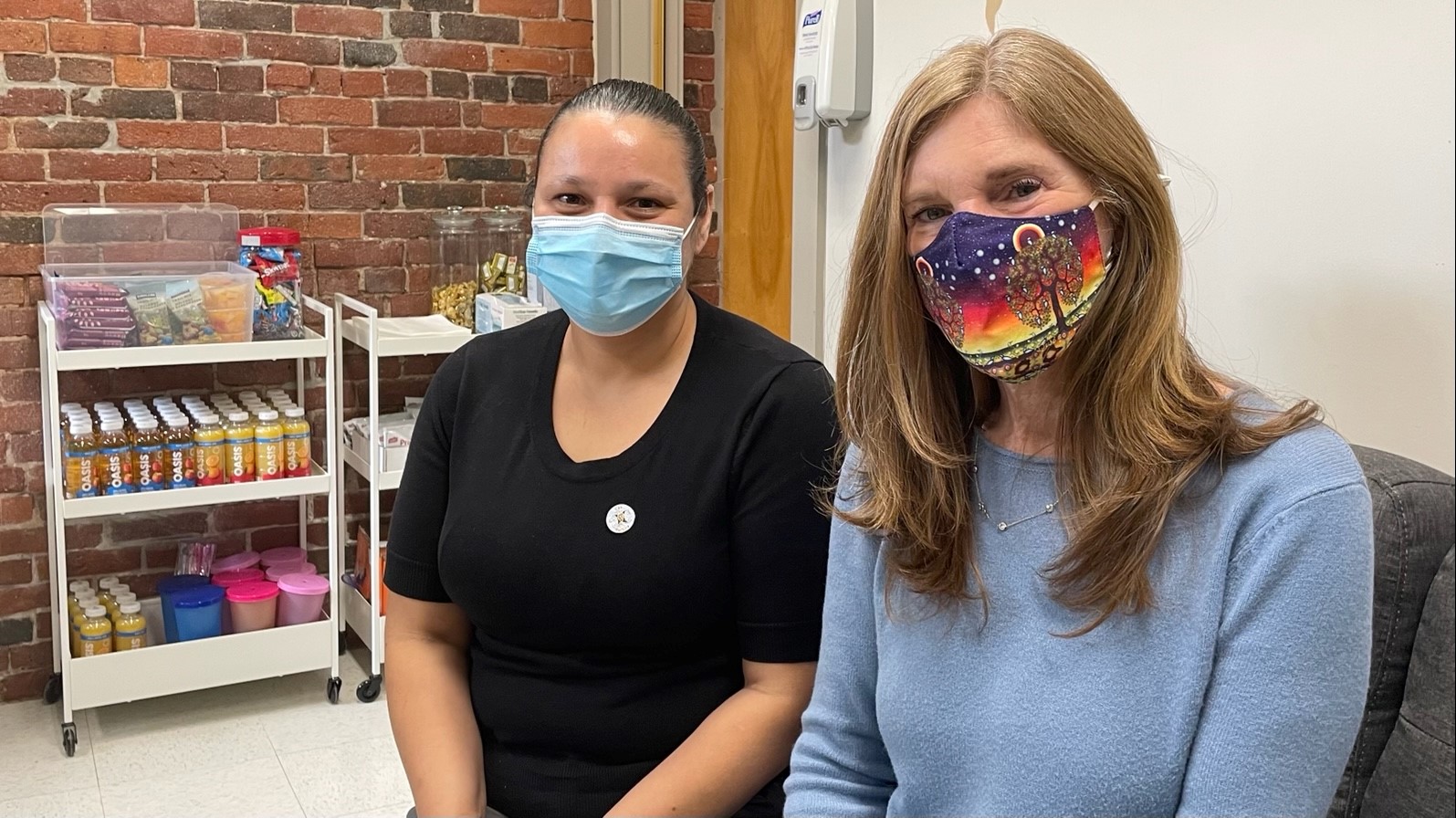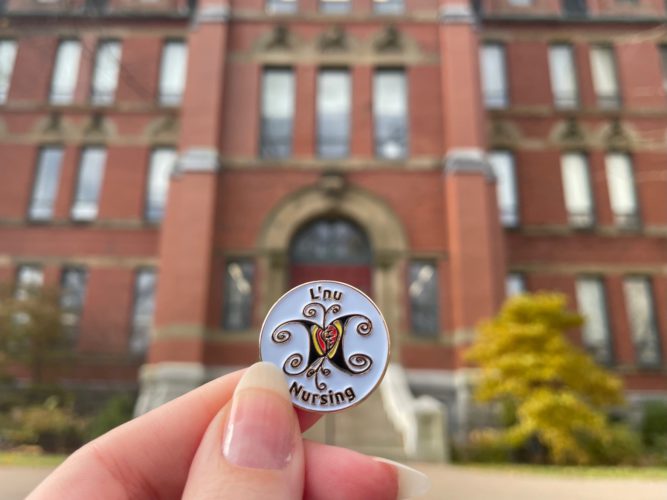Mi’kmaw students wanted for Dalhousie nursing program
School of nursing will reserve 20 seats for Indigenous students

caption
Dawn GooGoo and Margot Latimer sit in the Indigenous nursing students' lounge on Nov. 17, 2021.Dawn GooGoo is working to attract more Indigenous students to the nursing profession.
GooGoo is the L’nu nurse initiative lead at Dalhousie University’s faculty of health. Her position was created by the Nova Scotia research chair in Indigenous health nursing, currently held by Margot Latimer.
On Friday, Dalhousie’s faculty of health announced that 20 seats in their nursing program will be prioritized for Indigenous applicants, amounting to roughly 10 per cent of the class.
“The estimates are only about one to 1.5 per cent of the nursing population in Nova Scotia is Mi’kmaq, when the actual population is about five and a half per cent,” Latimer said.
GooGoo and Latimer are hoping the new initiative will address this underrepresentation.
Out of 192 students accepted to the main campus cohort, 20 positions will be reserved for Indigenous students. While the seats are open to all Indigenous applicants, priority will be given to Mi’kmaq.
In the same announcement, Dalhousie has committed to holding the same number of seats for Black Nova Scotian students. The change will be in effect for September 2022 admissions.
Wenona Alphonse, the Indigenous caucus chair of the Canadian Nursing Students’ Association, said many nursing programs do reserve a small portion of seats for Indigenous students, but aren’t usually open about it.
Having Indigenous people in nursing causes a “ripple effect,” Alphonse said. “If we didn’t have students in these places … there wouldn’t be a push for changes in health care that are needed within truth and reconciliation in Canada.”
Latimer said financing education is “really a big barrier” for many prospective Indigenous students.
GooGoo has helped many Indigenous students access funding, and set up a room for Indigenous nursing students in the basement of the Forrest building.
The lounge is cosy, with a large sectional couch, desks, and will soon have an area rug that highlights Indigenous values. It’s inspired by a space GooGoo and her peers had access to during her own undergrad in nursing at St. Francis Xavier University.
To GooGoo, the lounge is a manifestation of the support system she is building. She said it will be a place that empowers nurses’ pride and strength in their Indigenous identity.

caption
The L’nu nurse initiative is represented by art from Mi’Kmaw artist Alan Syliboy’s work “The Butterfly.” The image symbolizes many of the values GooGoo is hoping to bring forth, including traditional medicine, balance and community unison.Alphonse said this is also something that will draw Indigenous students to Dalhousie above other nursing schools without similar supports.
“Just having that first connection in university is vital to a student’s success within a nursing program,” Alphonse said.
She doesn’t foresee the program struggling to fill those seats because of the competitive nature of nursing.
GooGoo and Latimer said they’re here for all Indigenous people interested in nursing in Mi’kma’ki, and that building community ties is central to their work.
The first post on GooGoo’s Facebook page, Mi’kmaq Nurses, asked the community if they or someone they knew were interested in being a nurse. GooGoo said the post got 41 responses in a span of three days.
The page is how GooGoo got into contact with Jennifer Crossman, one of the nursing students she helped apply to school.
Crossman was eager to apply to nursing because she sees an increased need for nurses in general, but specifically Indigenous nurses.
“Even in 2021, there’s still that huge gap of knowledge between non-First Nations and First Nation nurses, there’s still those misconceptions and stereotypes,” Crossman said.
In terms of support, Crossman said “the biggest thing is having somebody who’s done it before, and that can help you navigate the system from an Indigenous perspective.”
About the author
Abby McLeod
Abby is a reporter completing her Bachelor of Journalism at the University of King's College. Born on P.E.I. but raised in Ontario and educated...
